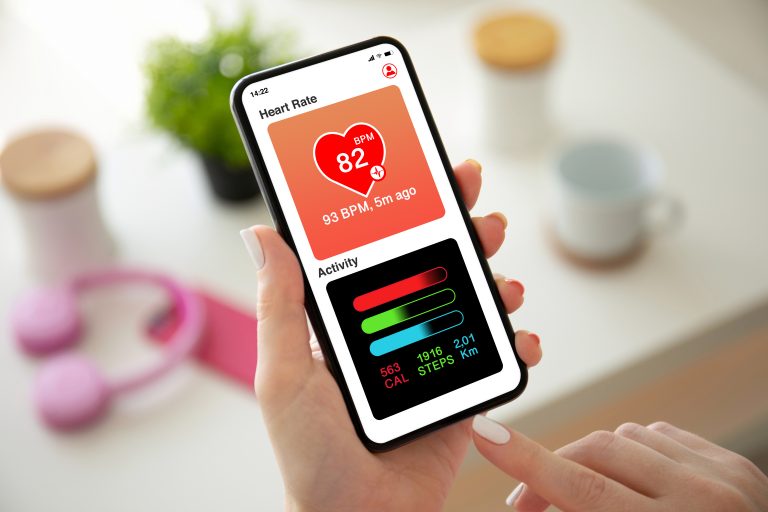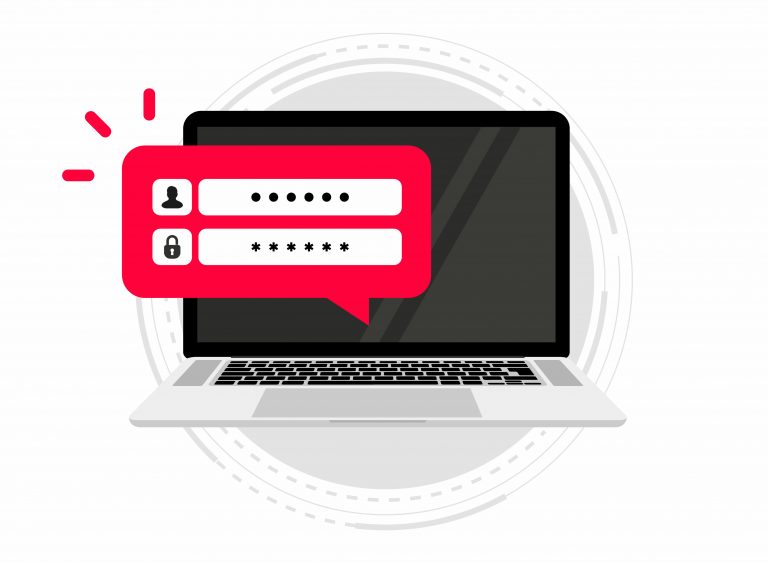Securing Your Health Data: Privacy Measures in Telemedicine
January 25, 2024Telemedicine has become an increasingly popular option for accessing healthcare services, allowing patients to consult with healthcare providers remotely. What…

Virtual assistants have become an integral part of our daily lives, helping us with tasks, answering our questions, and even controlling our smart home devices.
But as we welcome these digital helpers into our homes and workplaces, it’s important to consider the privacy implications. What data is being collected by virtual assistants? Who has access to this data? And how can we protect our privacy while still enjoying the convenience of these AI-powered tools?
Virtual Assistants play a crucial role in modern society, offering seamless integration of artificial intelligence into our daily routines and activities. With the rise of voice-activated assistants, the use of Virtual Assistants has become increasingly prevalent, revolutionizing the way users interact with technology and access information.
The impact of Virtual Assistants on user experiences is significant, as they provide personalized assistance, streamline tasks, and offer real-time information, enhancing efficiency and convenience.
The integration of AI allows these assistants to learn from user interactions, adapting to individual preferences and optimizing performance over time. The emerging trend of voice-activated assistants, such as smart speakers such as Alexa and Siri, reflects the increasing demand for hands-free, intuitive interactions with technology, shaping the future of human-computer interaction.
Virtual Assistants, also known as VAs, are AI tools designed to assist users in various tasks, such as scheduling appointments, providing information, and controlling smart home devices. These assistants often rely on personal data to customize their responses and actions, fostering user trust and enhancing the overall experience.
With the advancements in natural language processing and machine learning, virtual assistants can understand and respond to user requests more accurately and contextually. They can learn from user interactions, adapting and improving their responses over time.
By analyzing user preferences and behaviors, VAs can anticipate needs and provide personalized recommendations, enhancing productivity, facilitating decision-making, and simplifying daily routines.
The reliance on personal data has raised concerns about user data privacy, prompting the need for strict regulations and robust security measures to protect sensitive information. Virtual assistants must prioritize privacy and data protection, earning user trust through transparency and clear consent mechanisms. By addressing these privacy concerns, VAs can continue to support users in a way that respects and safeguards their personal information.
Virtual Assistants operate through sophisticated algorithms and chatbot tools that enable them to understand user queries, process information, and respond with relevant content. Data security and client privacy are prioritized in the functioning of Virtual Assistants, ensuring that user information is handled with the utmost care and safeguarded against potential cybersecurity threats.
These chatbot tools are designed to comprehend natural language and context, allowing Virtual Assistants to provide personalized and efficient assistance.
Robust data encryption and access controls are implemented to protect sensitive information from unauthorized access or breaches.
Client privacy considerations involve stringent confidentiality agreements and adherence to regulatory standards, reinforcing the trust and confidence of users in the capabilities of Virtual Assistants.
The widespread adoption of Virtual Assistants has raised significant privacy concerns, particularly regarding the collection and usage of personal data. This has prompted regulatory bodies to introduce stringent regulations, such as GDPR, to address ethical considerations and safeguard user privacy in the digital landscape.
With Virtual Assistants becoming an integral part of daily routines, the intricacies of data collection have come under scrutiny.
These AI-powered systems often gather extensive personal information, from voice recordings to search history, to customize end users’ experiences.
The introduction of the General Data Protection Regulation (GDPR) in the European Union necessitates that companies handling the personal data of EU citizens comply with strict guidelines.
The GDPR emphasizes obtaining explicit consent from individuals for data collection and processing, exercising greater transparency and accountability.
Furthermore, privacy concerns extend beyond mere legal compliance.
Users are becoming increasingly wary of how their data is being used by technology companies.
The ethical implications of deploying Virtual Assistants to access and analyze personal information are being scrutinized, prompting a broader debate on digital ethics and user autonomy.
Virtual Assistants collect a wide range of information from users, including personal preferences, search history, and location data. While this data facilitates personalized interactions, it also raises concerns about potential data breaches and unauthorized access to sensitive user information.
Aside from personal preferences, search history, and location data, virtual assistants also gather communication data, such as voice recordings, voice data, text transcripts, and contact lists. This comprehensive range of data enables virtual assistants to anticipate user needs and preferences, providing a more tailored and efficient user experience.
The gathering of such intimate details poses potential risks to user privacy, as unauthorized access to this information could lead to identity theft, financial fraud, or invasions of personal space. User data collected by virtual assistants often includes sensitive information, such as health or financial details. Any data breaches concerning this information could have serious consequences for users. This includes compromising the confidentiality of personal data, leading to financial losses, and undermining trust in the security of virtual voice assistant technology platforms.
Hence, companies must prioritize stringent security measures and privacy protection protocols to safeguard user data from potential privacy risks and data breaches.
The access to data collected by Virtual Assistants varies, with service providers and customer support personnel typically having authorized access to facilitate seamless user experiences and address inquiries. Strict regulations and protocols are in place to govern the access and usage of this data, ensuring compliance with privacy standards.
This access involves a range of entities and processes. Service providers are responsible for the management of the Virtual Assistant infrastructure and may have access to the aggregated data for system maintenance and improvement purposes.
Customer support teams, on the other hand, utilize the data to better understand user interactions and provide personalized assistance. It’s crucial to note that all access must adhere to regulatory frameworks such as GDPR in the European Union, CCPA in California, and other data protection laws around the world. These regulations set clear guidelines for the collection, storage, and usage of personal data, ensuring transparency and protection for users.
The sharing of user data by Virtual Assistants poses inherent risks, including potential privacy violations, exposure to cybersecurity threats, and non-compliance with privacy regulations. It is crucial to address these risks effectively to safeguard user privacy and maintain trust in Virtual Assistant technologies.
When user data is shared with Virtual Assistants, there is a legitimate concern about how this information is used, stored, and protected. Privacy violations can occur if sensitive information, such as personal conversations or financial details, is not handled with the appropriate level of confidentiality.
The exposure to cybersecurity threats is heightened when data is shared across digital platforms, potentially leading to unauthorized access, data breaches, or other malicious activities.
Compliance with privacy regulations is of utmost importance in this context. Failure to adhere to established data protection laws can result in severe further legal obligations and financial consequences for the companies deploying Virtual Assistants.
Organizations need to prioritize regulatory compliance to ensure that user data is handled responsibly and by the applicable laws and industry standards.
Ensuring the privacy and security of personal information when using Virtual Assistants is paramount in today’s digital landscape.
Adhering to guidelines such as GDPR, users can protect their privacy by limiting the amount of personal information shared, using strong passwords, and regularly reviewing and deleting stored data.
It is also crucial to carefully review the terms and conditions of any Virtual Assistant service to understand how data is handled. Users should consider enabling multi-factor authentication for an added layer of security. Being mindful of the permissions granted to Virtual Assistants and regularly updating privacy settings can contribute to a safer and more secure experience.
Before engaging with Virtual Assistants, users should carefully read and understand the privacy policy of the respective service provider, as it outlines the collection, usage, and protection of user data. This practice ensures users’ consent and awareness of the privacy practices and rights outlined by regulations.
Users must comprehend how their personal information is handled by the Virtual Assistants they interact with. The privacy policy typically defines what data is gathered, the purposes for its use, and the security measures in place to safeguard it.
By being well-informed about these aspects, individuals can make informed decisions about their online activities.
Users can enhance their privacy when using Virtual Assistants by exercising discretion in sharing personal information, particularly sensitive data. This practice minimizes potential security risks and aligns with ethical considerations regarding data protection and privacy issues of voice assistants.
When interacting with Virtual Assistants, one must be cautious about the type and amount of personal information shared. Data security should be a top priority when engaging with these AI-driven tools.
By adopting a selective approach and disclosing only necessary details, individuals can mitigate the chances of their sensitive information being compromised.
It is crucial to recognize the ethical implications of sharing personal data with Virtual Assistants. Companies offering these AI services should also adhere to privacy guidelines and ensure that user information is handled responsibly and with explicit user consent.
This fosters trust between users and service providers, promoting a secure and ethical environment for data sharing.
Implementing robust security measures, such as using strong passwords and enabling two-factor authentication, bolsters the protection of user data when interacting with Virtual Assistants. These practices mitigate cybersecurity threats and enhance the overall security posture of user accounts.
By incorporating two-factor authentication, users add an extra layer of security to their accounts, requiring a second form of verification beyond just a password. This significantly reduces the risk of unauthorized access, especially in cases where the password might be compromised.
Furthermore, strong passwords play a crucial role in preventing unauthorized access and data breaches, making it vital to use complex combinations of letters, numbers, and symbols. Cybersecurity threats continue to evolve, necessitating proactive measures to safeguard sensitive user information.
To maintain control over their personal information, users should regularly review the data stored by Virtual Assistants and delete any unnecessary or outdated information. This proactive approach aligns with data privacy practices and gives the power tos users to manage their digital footprint effectively.
As technology continues to play an integral role in modern life, the use of virtual assistants has become increasingly prevalent. With the convenience of voice commands and personalized assistance, the wealth of data they collect and store is substantial.
Consequently, individuals must maintain awareness of the stored information to uphold their data privacy. Regular reviews and deletions of unnecessary data not only safeguard personal information but also allow for a more accurate representation of an individual’s preferences and needs. This vigilance gives users a sense of control over their digital presence and strengthens user give the power in the online environment.
The future of privacy in the context of Virtual Assistants hinges on addressing ethical considerations and advancing the capabilities of AI tools to enhance data privacy. As technology evolves, the integration of robust privacy measures and ethical frameworks will be pivotal in shaping the future landscape of Virtual Assistants.
Virtual Assistants are continuously learning from their interactions with users and developing a deeper understanding of human behavior. This evolution brings about concerns regarding the protection of personal information and the ethical use of such data.
Therefore, privacy-centric AI tools will play a vital role in ensuring that Virtual Assistants honor user privacy while delivering valuable assistance. As we move forward, the responsibility falls on developers and stakeholders to embed privacy considerations into the core design of Virtual Assistants.
This proactive approach will lead to the creation of Virtual Assistants that not only enrich user experiences but also prioritize the ethical handling of sensitive data.
Efforts are underway to address privacy concerns associated with Virtual Assistants, including the implementation of enhanced privacy regulations, transparency in data practices, and initiatives to reinforce user trust. These steps aim to further privacy challenges and foster a secure and transparent environment for users engaging with Virtual Assistant technologies.
Regulatory compliance is a key driver behind the efforts to bolster data protection in the realm of Virtual Assistants. Authorities are collaborating closely with industry stakeholders to develop and enforce privacy regulations that govern the collection, storage, and usage of personal information.
A pivotal aspect of this approach involves championing transparency in data practices, requiring Virtual Assistant providers to articulate their data collection and usage policies in clear and accessible terms.
Aligned with these efforts, significant focus is being placed on initiatives that prioritize user trust. Strategies encompass building robust security measures, enabling user-controlled privacy settings, and offering comprehensive disclosures regarding data handling.
These endeavors ultimately endeavor to instill confidence among voice assistant users, fostering a positive relationship between individuals and Virtual Assistant technologies.
The future is poised to bring about significant changes in the realm of Virtual Assistants, encompassing heightened data security measures, advancements in AI tools, and a greater emphasis on user-centric data privacy. These changes aim to elevate the overall user experience and instill confidence in the privacy of interactions with Virtual Assistants.
One of the most anticipated changes in Virtual Assistant technologies revolves around data security. As the reliance on Virtual Assistants grows, the protection of sensitive information becomes increasingly paramount.
The evolution of AI tools is also set to revolutionize Virtual Assistants, enabling more natural and intelligent interactions while enhancing overall functionality. This progress not only augments the accuracy and efficacy of Virtual Assistants but also propels them towards a more human-like interaction.
The pivotal role of user-centric data and privacy issues is expected to shape future innovations in Virtual Assistant technologies. With greater awareness of privacy concerns, developers will be driven to design Virtual Assistants that not only cater to user needs but also prioritize the protection of personal data.
The focus on securing user data and ensuring privacy compliance will be at the forefront of Virtual Assistant developments, fostering a more trustworthy and user-friendly interaction environment.

Telemedicine has become an increasingly popular option for accessing healthcare services, allowing patients to consult with healthcare providers remotely. What…

In a world where cyber threats are becoming increasingly sophisticated, the importance of having strong passwords cannot be overstated. But…

Are you looking for a new job while still employed? Discreet job searching online is the key to keeping your…